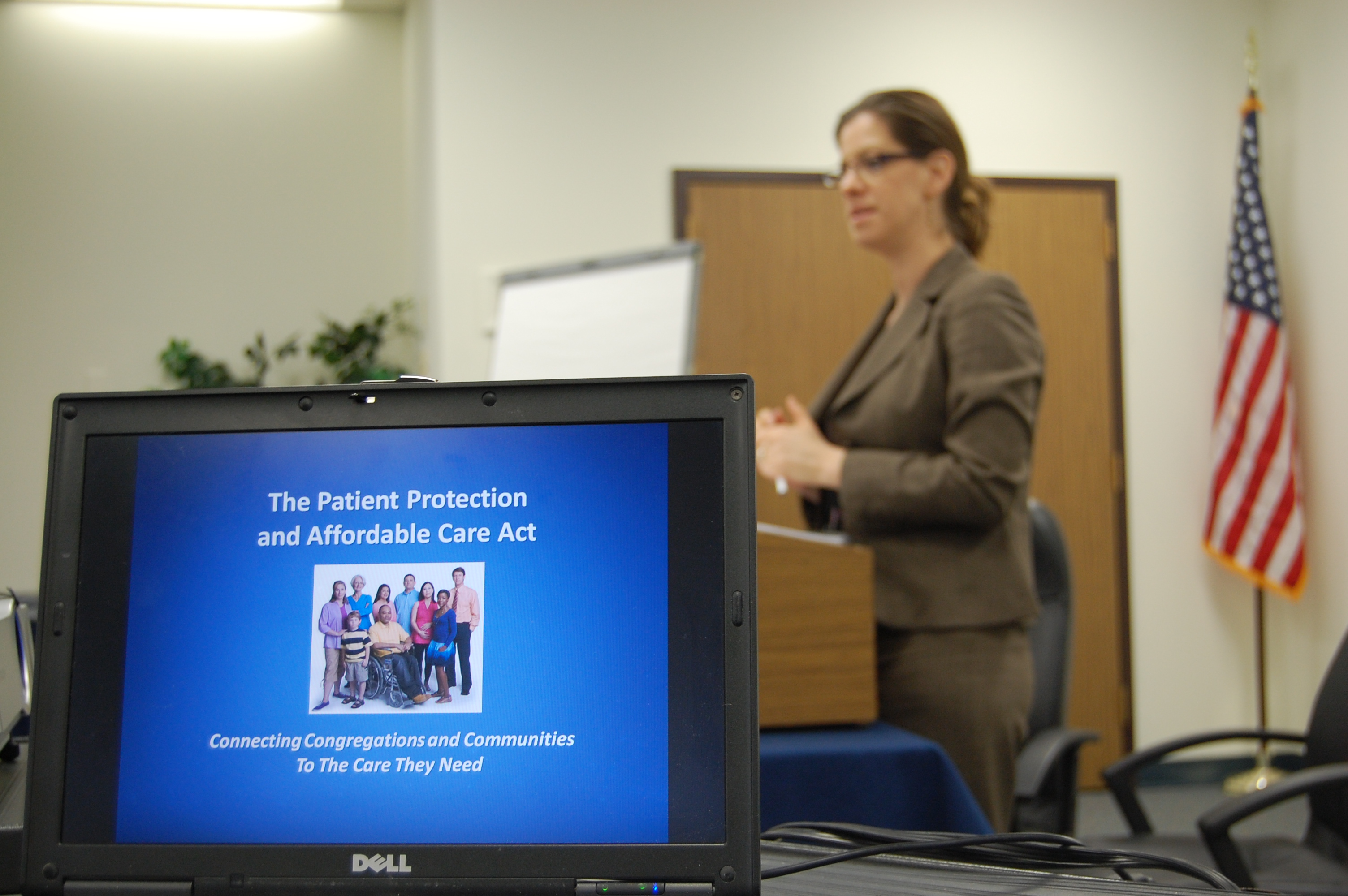
At the end of March our staff traveled to present to the Episcopal Church’s Commission on Health. The Episcopal Church has a rich tradition of ministry and service to the impoverished and underserved. This tradition inspires their interest in health care access for all people, especially the most vulnerable.
Having an opportunity to speak directly to the leaders of the commission that guides the Church’s healthcare ministry was an amazing opportunity for me and my colleagues. I began our presentation by reminding everyone that President Obama and Secretary Sebelius believe that faith and community leaders play an important role connecting hard-to-reach populations to quality, affordable health care. "The stories of everyday Americans and, more importantly, the courage it took to share those stories is what kept this effort alive…,” said President Obama.
The Affordable Care Act expands access to care, ends some of the worst insurance company abuses, and makes health care more affordable. Yet many questions remain about the impact of the law.
We had the opportunity to share with the group, that right now, uninsured Americans with pre-existing conditions can get coverage through the new Pre-existing Condition Insurance Plan (PCIP) and young people are allowed to stay on a parent’s health care plan up to age 26. When I discussed ending insurance abuses, I explained that it is now illegal for an insurance company to drop you from a health care plan if you become sick due to an unintentional paperwork mistake. By putting you in control of your care, I told the commission, insurers can no longer cap the dollar amount they will pay or limit the amount of care you will receive in your lifetime.
After our brief presentation we had an opportunity to take questions from members of the commission. One of the hot topics was the National Health Service Corps which repays educational loans and provides scholarships to primary health care providers, including doctors, nurses, dentists, physician assistants and mental health professionals who practice in medically underserved areas. The Affordable Care Act expands this program, creating job opportunities and expanding the primary care workforce. We also discussed ways the HHS Partnership Center and the Episcopal Church can partner to remove the stigma associated with community health centers in certain communities.
Opportunities to discuss and share ideas about the ways faith-based organizations and government agencies can partner to connect vulnerable and hard-to-reach populations to quality, affordable health care is one of the main goals of our Center. We are grateful for the opportunity to build dynamic partnerships with diverse faith organizations, like the Episcopal Church, to help expand access to care for those most in need.
Mara Vanderslice is the Acting Director and Senior Advisor of the Center for Faith-based and Neighborhood Partnerships (The Partnership Center) at the U.S. Department of Health and Human Services.


